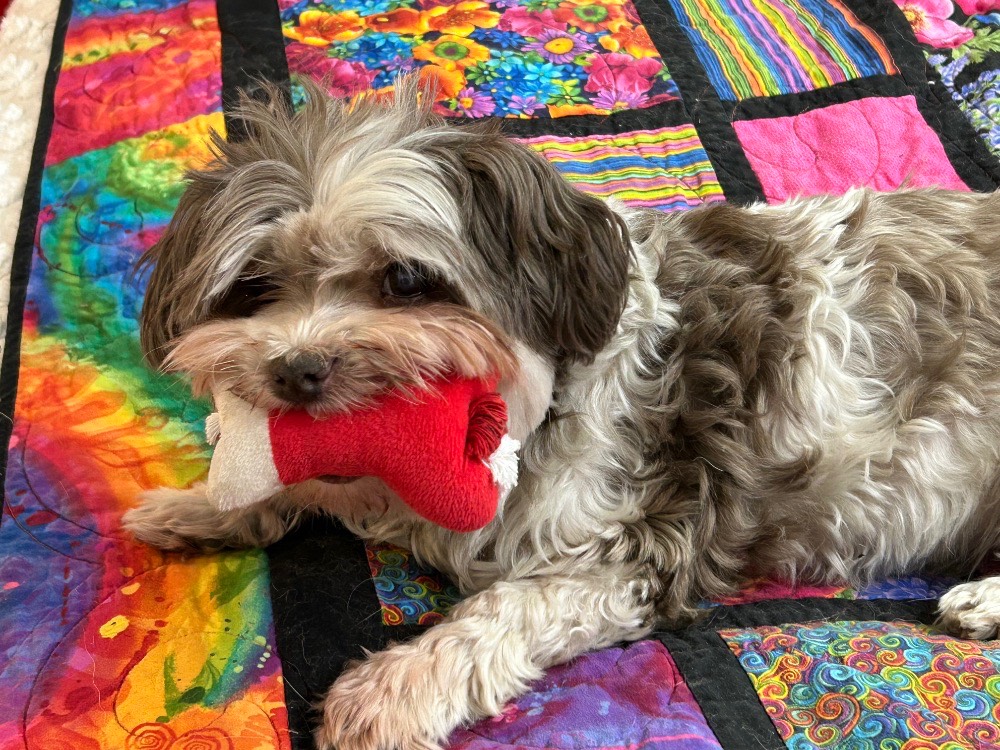March 15th, 2024
This week I learned a striking lesson from my little dog Roxy:

Roxy is a small dog, but she’s loads of fun. On Sunday morning, March 10th, she went into the pasture with us for a little wandering. She ran and played. But that evening, we noticed that she was not feeling well. We couldn’t see what the problem was, but we were worried. In the morning, she seemed worse, and there was a little drainage from her left eye, but we couldn’t figure out her problem. We took her to the veterinarian, who told us that Roxy had suffered major damage to her left eye. She could remove the eye or, if we preferred, she could refer us to a veterinary opthamologist who might be able to save her eye. We took her to the specialist who, after examination, told us that she could remove the eye for $3000, or attempt to save the eye for $7000, but she could not guarantee success. We chose the former course, which seemed obvious to us. So Roxy lost her eye. Here’s what she looked like after the surgery:

The opthamologist also informed us that the injury was probably caused by a cat scratch. We knew immediately who the guilty party was: Mokey, a rather aggressive cat. We were deeply upset that this sweet little dog should suffer such a tragedy and worried that perhaps we had been insufficiently protective. Now we insure that at all times Mokey is never in the same room with Roxy.
We were struck by the fact that Roxy was not emotionally affected by the accident. She’s just as happy and playful as she was before the accident. We marveled at that, but after some thought I realized that this is to be expected. Animals in the wild do not show any illness, because that would attract the attention of predators. An animal will look perfectly healthy right up to the point where it collapses.
The same rule applies to the emotions. In evolutionary terms, sadness is adaptively harmful. Animals have no need for self-pity or sadness over their losses; such emotions would betray a weakness that would bring on the predators. Roxy simply doesn’t know how to feel sad over her loss; it’s not part of her emotional repertoire.
Why, then, I ask, did humans invent sadness over loss or self-pity? The answer is that humans are social creatures. Displaying sadness or self-pity attracts the empathy of other humans, who will then provide assistance. For humans, sadness is adaptively beneficial.
There is one minor correction: dogs are also, to a lesser extent than humans, social creatures. Hence dogs can under some circumstances, display sadness or self-pity. Apparently, though, the gene for that is uncommon and Roxy never got it. She is and always will be a happy dog, no matter what.
